#Insolvency Bankruptcy NCLT Lawyers in Delhi
Text







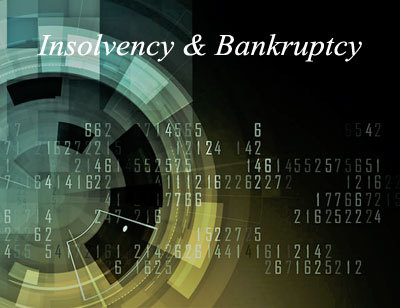



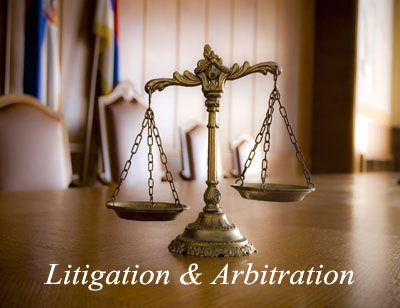






Equi Corp Legal has the best lawyers in Delhi NCR
#Corporate Disputes Litigation Lawyers in Delhi#Insolvency Bankruptcy NCLT Lawyers in Delhi#Private Equity Funds Investment Transaction Advisory M&A Lawyers in Delhi#Technology E-Commerce Fintech Blockchain Lawyers in Delhi#Regulatory Compliance Legal Audits in Delhi Noida#Director Investor Shareholder Dispute Litigation Lawyers in Delhi#Sports Gaming lawyers in Delhi#Startup Investor Lawyers in Delhi#Banking NBFC Financial Services DRT Debt Restructuring Lawyers in Delhi#Corporate lawyers in Delhi#Arbitration Lawyers in Delhi#Consumer Protection Lawyers in Delhi#Commercial Civil Disputes Litigation Lawyers in Delhi
10 notes
·
View notes
Text
Equi Corp Associates (ECA) has the best Corporate Disputes Litigation Lawyers,Insolvency Bankruptcy NCLT Lawyers, Private Equity Funds Investment Transaction Advisory M&A Lawyers, Technology E-Commerce Fintech Blockchain Lawyers, Regulatory Compliance Legal Audits in Delhi.
0 notes
Text
Property ownership is a complicated process and requires a certain level of expertise to ensure that everything goes smoothly. This is where Property Advocates come in. A Property Advocate is a professional who specializes in dealing with all aspects of property law and can provide invaluable assistance when it comes to purchasing, selling, and leasing property.
When it comes to choosing the Best Property Advocate in Delhi, there are many factors to consider. The most important factor is their level of expertise. Property advocates are required to have a thorough understanding of property law and its various complexities. Moreover, they should have the capability to successfully navigate through the legal process, ensuring that all aspects of the transaction are completed in a timely and l
egal manner.
Another factor to consider when selecting the Debt Recovery Tribunal Lawyers in Delhi is their ability to effectively communicate with clients. They should be able to clearly articulate the legal issues and provide straightforward advice in a manner that is easily digestible. Additionally, they should be open to answering any questions clients may have and possess the ability to think on their feet.
Finally, the Top insolvency And Bankruptcy Lawyer in Delhi should have extensive experience in the industry. They should be knowledgeable in all aspects of the local legal system and regulations, as well as possess the ability to successfully negotiate the best terms for their clients. Furthermore, they should have a good reputation among their peers and be willing to go the extra mile to ensure that their clients’ interests are taken care of.In this article, we will take a look at the importance of hiring the Best Civil Litigation Lawyers in Delhi, the qualities of the best property advocate, and how to identify the Best NCLT Lawyer in Delhi. We hope this article will help you make an informed decision when selecting a property advocate for your needs.
#Best Debt Recovery Tribunal Lawyers in Delhi#Litigation Lawyers in DelhiLitigation Lawyers in Delhi
1 note
·
View note
Link
The Insolvency and Bankruptcy Code, 2016 (IBC) was passed by the Parliament on 11th May 2016, received Presidential assent on 28th May 2016 and was notified in the official gazette on the same day. IBC is a welcome overhaul of the existing framework dealing with insolvency of corporates, individuals, partnerships and other entities. It paves the way for much needed reforms while focusing on creditor driven insolvency resolution.
#LEGAL CONSULTANCY SERVICES#BEST CORPORATE LAW FIRMS IN DELHI#BEST CORPORATE LAWYER FOR NCLT#BEST CORPORATE LAWYER IN DELHI#BEST CORPORATE LAWYER IN DELHI-NCR#BEST CORPORATE LAWYER IN GURGAON#BEST CORPORATE LAWYER IN GURUGRAM#BEST LAWYER FOR DRT#CORPORATE LAWYER#ONLINE CORPORATE LAWYERS IN DELHI#FDI IN INDIA#NRI LEGAL SERVICES#NRI LEGAL SERVICES DELHI#TOP CORPORATE LAW FIRMS IN DELHI#INSOLVENCY AND BANKRUPTCY#STARTUP ADVISOR
0 notes
Text
How to File Suit for Recovery in India?
RECOVERY OF MONEY, WHAT IS RECOVERY OR SUMMARY SUIT?
Recovery of money- A brief action or summary procedure is contained in Ordinance 37 of the Civil Procedure Code, 1908 (hereinafter referred to as the “CPC”), whose purpose is to summarize the proceedings in the absence of a defendant’s defence.
Application and Scope
This applies to
1. All suits on bills of exchange, hundies, and promissory notes.
2. Claims in which the plaintiff seeks to recover a debt paid to the defendant shall be established each on the basis of a written contract or legislation.
An action under this Order can be file with the Supreme Court, the City Civil Court, the Small Court, or any other court as notified by the Supreme Court.
Who is competent to invoke this matter?
For companies, partnership firms, merchants, etc., can file a claim to recover their unpaid bills/work due amount or payment when there is no written contract/agreement between the parties.
Is there any limitation period to file a recovery suit?
The statutory limitation period for filing a civil recovery claim in India is restricted to three years. Thereafter, the claim is forbidden over time. It is up to the Court to select which one to file for recovery.
What is pecuniary jurisdiction?
In India, according to the jurisdiction of civil proceedings, the financial or monetary control of the courts depends upon the states in which the cause of the action arises.
The monetary jurisdiction of the Court is decided case to case basis, which means that depending on the evaluation of the case, there are different levels of courts with different monetary mandates, which will have to be brought before the Court with the required jurisdiction.
For example, the financial jurisdiction of the courts in Delhi is as follows:
Cases up to 2,000,0000/- before the local courts.
Claims above 2,000,0000/- fall before the High Courts.
Institution of summary suits under Order 37 of CPC
1. Submit a fee which must include the determination as to whether the lawsuit is filed under this Order, and that no remedy has been claimed under any other laws .
2. The complaint shall be in Form 4 of Appendix B or in any other form which may, from time to time, be prescribed in this regard.
3. The defendant shall not defend the case referred to in sub-rule (1) unless it appears in his complaint.
The interest rate at the specified rate, if any, up to the date of the issuance of the decree and the number of costs that may be determined by the Supreme Court from time to time by the rules issued in this name, and this decree may be implemented immediately.
Brief Actions
The Court and the categories of claims to which the Order applies.
1. This Order applies to the following courts, ie
High courts, civil courts in cities and courts with a small case.
Other courts: produced that in respect of the courts referred to in subparagraph (b), the Supreme Court may,
2. Subject to the provisions of sub-rules (1), the following categories of claims shall apply:
Provisions on a bill of exchange and promissory notes:
Litigation in which the plaintiff seeks only to recover a debt or request a liquidator of the funds paid to the defendant, with or without interest, arising.
(i) in a written contract, or
(ii) In the case of enactment, if the amount to be recovered is a fixed amount of money or in the nature of the debt other than the penalty: or
(iii) On guarantee, if the claim against the Director relates only to a debt or a liquidator’s request.
If the contract or agreement is not in writing, a simple civil action will be filed on the basis of the truths and circumstances of the cases.
Leave to defend granted to defendants
The accused may, at any time within 10 days of service of summons , by written affidavit or otherwise disclose the facts which may be deemed sufficient to entitle him to the defence, and apply for permission to defend such action, leaving the defence may have been leased to him without a limitation or condition, as the Court or judge may appear to be fair:
Provided that the authorization of the defence is denied only if the Court is satisfied that the facts disclosed by the defendant do not indicate that he has a substantial defence or that the defence that the defendant intends to present is trivial or contrived:
In addition, if the defendant accepts part of the amount claimed by the plaintiff to be entitled to it, permission to defend the case is granted only if the defendant deposited the amount admitted in Court for Recovery of Money.
Jurisdiction to file a suit in District Courts
The Supreme Court determines the financial limit of the District Court. In the case of Delhi, the financial limits of the District Court were 20 lakh which were increased after the amendment to Rs 2 crore.
High Court
The original financial jurisdiction of the Supreme Court is lawsuits where the value of the matter in question is more than two crores.
Objection to Pecuniary Jurisdiction
The financial jurisdiction shall be determined by the value of the case determined by the claimant. If there is an objection to the financial jurisdiction of the Court, the Court of First Instance will investigate the matter and issue an appropriate order.
Money Recovery
Collecting bad debts, due receivables, or handling bounced checks can cause distress. To help you recover your debt, LetsComply has a team of experienced debt collection lawyers and financial professionals who can provide tailor-made recovery solutions that are right for you.
The procedure for money recovery
The first step in the refund process will be to send legal notice to the defaulter.
If you furthermore do not receive payment, you can go for one of these options. Summary lawsuits, negotiable instruments, criminal case or insolvency, and bankruptcy law.
Our specialist lawyers will lead you through the process to help you make the best choice.
What are the different means to recover your money?
Send legal notice
You can issue a legal notice to the other party. Once the person receives the notification, they have up to 15 days to make the payment to you. If he fails to do so, a complaint may be registered with the Court in the specified format or flight information file.
Summary Claims
The most reliable and quickest way to recover money and end judicial proceedings would be Ordinance 37 of the Code of Civil Procedure. With urgent proceedings, the parties can avoid the hearing, because the procedure will be based on written statements. This will significantly reduce the time taken from filing to judgment.
Law of negotiable instruments
Under the negotiable instrument law, there are provisions for the recovery of debt or money. For example, if your cheque is returned, you have 30 days from the information received by you from the bank to send legal notice to the check drawer. Even if the stairs fail to make the payment, within 15 days of receiving the notice, you can file a complaint in Court within 30 days.
Criminal case
We can assist in filing of criminal cases against a debtor under the Indian Penal Code, 1860. You can either record a case of criminal breach of trust or fraud and embezzlement is dishonest.
INSOLVENCY AND BANKRUPTCY CODE
An insolvency case on debt collection (NCLT in the case of corporate debtors) will be submitted to the arbitral authority. The petition should be accepted or rejected in 14 days. To complete the insolvency settlement process, set a maximum time limit for individuals and companies.
How To Register a Company
Why LetsComply
Access to experts
We connect you with trusted professionals and coordinate with them to meet all your legal requirements. You can also follow the development of our platform at all times.
9.1 Customer Points
Customers are happy with our service! We have consistently assessed us considerably because of our focus on streamlining legal demands and providing frequent updates.
200+ strong team
If you have any questions about the process, our team of experienced business advisors are just a phone call away. Our team will ensure a smooth and smooth interaction with professionals.
More Information Click Here: https://www.letscomply.com/recovery-of-money/
Contact Us:
+91-97-1707-0500
https://www.letscomply.com/
0 notes
Text
NCLT Lawyer in Ahmedabad - Advocate P M Modi
The National Company Law Tribunal is a quasi-judicial body in India that adjudicates issues relating to Indian companies.
The central government has constituted NCLT under section 408 of the companies act 2013 (18 of 2013) w.e.f 01/06/2016. In the first face the ministry of corporate affairs have set up eleven Benches, one principal bench at New Delhi and ten benches at New Delhi, Ahmedabad, Bengaluru, Chandigarh, Chennai, Guahati, Hyderabad, Kolkata and Mumbai, These benches headed by the president and 16 judicial members and 09 Technical members at different locations, Subsequently more members have joined and benches at Cuttack, Jaipur, Kochi, Amravati, and Indore have been setup.

Basically, NCLT is taken care of issues like financial and operational creditors, debtors and liquidation related disputes of the company, and many more issues related to companies acts. In other words, Insolvency applications against the corporate persons who owe a debt to some creditors and defaults in making the payment to the creditors (financial or operational) shall be filed in the NCLT. Advocate P M Modi is a famous (National Company Law Tribunal) NCLT Lawyer in Ahmedabad. Advocate P M Modi is also Company Law Lawyer in Gujarat having experience and expertise in companies Act and business and Corporate Laws.
Expertise: As an expert lawyer of NCLT we have great experience and expertise in matters pertaining to Companies Act and Insolvency & Bankruptcy Code (IBC) before National Company Law Tribunal (NCLT) and other aspects of Business and Corporate Laws in India including the incorporation of companies, Corporate restructuring, Applications under the Companies Act, 2013.
Offer: As a law firm we are offering legal services NCLT Ahmedabad, The Insolvency and Bankruptcy Laws have had a much-needed overhaul with the coming into force of the recent Insolvency & Bankruptcy Code in 2016. Indulge in providing with the advisories with respect to various facets of Insolvency & Bankruptcy Code such as advisory on corporate debts, insolvency crisis, and other strategies for insolvency resolution.
Result or Benefits: Our clients will get good services from specialized lawyer and Councilors, will get good guidance as well as result-oriented based efforts and thus our good lawyer may be able to get you proper solutions under the Insolvency & Bankruptcy code either you are company or creditors or debtors. For more info, visit www.advocatepmmodi.in
0 notes
Photo

We at Bankruptcy & Insolvency NCLT Lawyers in Delhi usually solve the problems of the clients related to the practical legal solutions and it becomes our personal responsibility to solve all the problems of the clients without wasting their precious time.
http://www.corporatelawyersdelhi.com/
Equi Corp Associates, Advocates & Solicitors.
1st Floor, NBBC, Inox Towers,Tower-B, Plot No.17,
Sector-16A,Film City,
Noida-201301, India.
+91- 8448824659
0 notes
Text

#Advocates and #Legal Consultants
http://shakeel-advocate.business.site
www.lexadvocate.com
Mob: 9873033490
#lawyers #advocate #attorney #delhincr #delhijobs #lawyersindelhi #civillitigation #criminaldefense #criminallaw #criminaldefenseattorney #criminallawyrs #civilrights #lawsuit #lawfirmlife #lawoffice #domesticviolence #chequebouncelawyer #consumerlaw # #newyork #bankruptcy
#network #media #uk #india #bankruptcylaw #bankingandfinance #legalpractice #legaladvice #legalprofession #legalissues #humanrights #companies #companylaw #corporatelaw #corporatelawyer #corporatecounsel #corporatelife #realestate #rera #realestatelaw #realestatelawyer #realestateattorney #cyberlaw #cybercrime #lawfirms #lawstudents #nclt #ncalt #drt #debtrecovery #bankingsolutions #drat #newdelhi #saudiarabia #dubaiproperty #dubaijobs #gulf #gulfnews #gulfjobs #lawyersofindia #lawyersofdelhi #lawyer #wealthmanagement #wealthcreation #solutionsprovider #indianrealestate #indianlaw #arbitration #marriage #divorcelawyer #divorceattorney #maintenance #builder #builders #propertylaw #property #properties #suit #lawsuits #supremecourt #highcourt #districtcourt #appellate #appeals #appeal #jurisdiction #courts #courts #delhicapitals #del #newlaw #newdelhi #saketcourt #patialahousecourt #dwarka #dwarkacourt #karkardumacourt #saket #delhicriminallawyers #delhicivillawyers #consumers #consumerprotection
Advocates, Lawyers and Legal Consultants in Delhi NCR
http://shakeel-advocate.business.site
www.lexadvocate.com
Appellate practice, Banking law, Bankruptcy law, Business law, commercial law, Civil law, Constitutional law, Consumer law court, Contract law, Corporate law, company law, Criminal law, Customs law, Cyber law, Defamation law, Environmental law, Family law, Intellectual property law, International law, International human rights, International trade, finance law, Labour law (or Labor law), Land use, Real estate law, Property law, RERA Advocate, Trademark law, Muslim Laws, Marriage Lawyer, Divorce Lawyer, Hindu Laws Advocate, Marriage Advocate, Succession Law, Domestic Violence Lawyers Advocates, Maintenance Laws Lawyers, Insolvency Lawyers, IBBI Advocate, Accident Lawyers, Claim Lawyers Advocates, MACT lawyers Advocates, Supreme Court Lawyers, Supreme Court Advocate, High Court Lawyers, High Court Advocate, Delhi High Court Advocate, Narcotics and Drugs Lawyers Advocates. SLP, Writs, Petitions, Defence Lawyer, Defence Advocate, Attorney
Contact 098730 33490
#advocate#attorney#lawyers#newdelhi#criminallawyers#legal#civillawyer#court#delhilawyers#highcourts#lawfirms#lawyer#marriagelawyer#chandigarh#mumbailawyer#criminallawyrs#advocates#advocateinindia#lawfirm#indiancourts#lawsuit#appellate#attorneyatlaw#criminallaw#divorce#law#consumer#criminal#criminaljustice#domestic
0 notes
Link
The Delhi High Court on Tuesday refused to allow Jet Airways’ founding Chairman Naresh Goyal plea to travel abroad for now. A single-judge bench of Justice Suresh Kumar Kait observed that if he was ready to give a bank guarantee worth Rs 18,000 crore, he would be free to go abroad. The observation by the court came on submission of the Ministry of Corporate Affairs’ lawyers who told the court that the Serious Fraud Investigation Office (SFIO) was probing a case of misappropriation of nearly Rs 18,000 crore by Jet Airways and Goyal.
The high court, while hearing the petition moved by Goyal against the Look-Out-Circular (LOC) issued against him and his wife by the Ministry of Corporate Affairs (MCA), said that the interim relief sought could not be given for now. The case will now be heard on August 23.
On the insistence of SFIO, the MCA had in May issued a LOC against Goyal and his wife. Following the notice, the husband-wife duo was de-planed from an Emirates Airways flight bound for London on May 25. On July 3, Goyal challenged the notice and said that that the circular was bad in law and violative of Article 14 and 21 of the Constitution, which enshrine personal liberty and equality for everyone.
In his plea before the high court, Goyal has submitted that the day he and his wife were deplaned from the London flight, he had scheduled meetings with foreign investors, who had shown interest in infusing funds into Jet Airways. Goyal has also contended that despite several requests, he was not served a copy of the LOC and neither had any First Information Report (FIR) been filed against him.
On Tuesday, Goyal’s counsel also told the high court that in order to maintain his Non-Resident Indian (NRI) status he must stay away from India for a period of at least 183 days a year. “In the current financial year 2019-20, the petitioner has only stayed away from India for seven days. The Petitioner only has 9 months remaining to fulfil the minimum requirement of staying away from India for 183 days,” Goyal had said in his petition before the high court.
The court, however, refused to entertain the plea and said that any final order in the case could be passed only after hearing the central government’s stand.
Goyal’s Jet Airways is currently undergoing insolvency proceedings as the Mumbai Bench of the National Company Law Tribunal (NCLT) admitted an insolvency petition filed by the State Bank of India (SBI) on behalf of 26 lenders on June 20. The airline owes over Rs 8,500 crore to a consortium of 26 banks led by SBI, and over Rs 13,000 crore to the vendors and nearly 23,000-odd employees. The airline formally stopped flying on April 17 and banks voted for bankruptcy on June 17.
0 notes
Text
Ease Of Doing Business
More about the report
The Doing Business report ranks countries on the basis of distance to frontier (DTF), a score that shows the gap of an economy to the global best practice.
The World Bank has recognised India as one of the top improvers for the year. This year, India features among the report’s list of top 10 improvers for the second year in a row and only one in BRICS to feature in this list.
India is seeking to reach the 30th position by 2020, according to an output-outcome framework document prepared by the government.
It will help India maintain its goal of strong and sustained economic growth, attract more FDI, achieve sound living standards and moderate inflation.
The Doing Business 2019 report bases the rankings on field surveys and interviews with corporate lawyers and company executives in Delhi and Mumbai.
Reasons for Improvement
Improving MSME sector: India’s strong reform agenda to improve the business climate for small and medium enterprises is bearing fruit.
Faster registration process: Starting a business was made easier through consolidation of multiple application forms and introduction of a goods and services tax (GST), while getting electricity was made faster and cheaper.
Infrastructural Development and fiscal reforms: Government focus on logistics and supply chain centred initiatives and fiscal reforms like Insolvency and Bankruptcy Code has helped in promoting trade and business.
Reduction in Corruption: Many initiatives such as Aadhaar, making registration online, acceptance of main amendments in Companies Amendment (Ordinance), 2018
Shifting of jurisdiction of 16 types of corporate offences from the special courts to in-house adjudication, which is expected to reduce the case load of Special Courts by over 60%, thereby enabling them to concentrate on serious corporate offences.
The penalty for small companies and one person companies has been reduced to half of that applicable to normal companies.
Instituting a transparent and technology driven in-house adjudication mechanism on an online platform and publication of the orders on the website.
Strengthening in-house adjudication mechanism by necessitating a concomitant order for making good the default at the time of levying penalty, to achieve the ultimate aim of achieving better compliance.
Declogging the NCLT by vesting the Central Government the power to approve cases of conversion of public companies into private companies.
Electronic signatures etc. has been taken. In fact, there has been a considerable year-on-year fall in the number of companies that viewed ‘corruption’ as a major barrier – from 51% in 2015 to 25% in 2017.
Improvement in construction permits: It was improved by implementing the single-window clearance system in Delhi and the online building permit approval system in Mumbai.
Improvement in trading across borders: It was achieved by reducing the time and cost to export and import through various initiatives, including the implementation of electronic sealing of containers, upgrading of port infrastructure and allowing electronic submission of supporting documents with digital signatures under its National Trade Facilitation Action Plan 2017-2020.
Recent Government Initiatives for Promotion of Ease of Doing Business
Ease of Doing Business Grand Challenge: The objective of this challenge is to invite innovative ideas based on Artificial Intelligence, Internet of Things, Big Data Analytics, Blockchain and other cutting edge technology to reform Government processes. The platform for the Grand Challenge is the Startup India Portal.
Companies Amendment (Ordinance), 2018: The Ordinance, which has been promulgated is based on the recommendations of the Committee appointed by the Government to review offences under the Companies Act, 2013.
Industrial Park Rating System: Under this Department of Industrial Policy & Promotion (DIPP), Ministry of Commerce & Industry has undertaken the exercise to rate the industrial parks on parameter such as: internal infrastructure, external infrastructure, business services and facilities, environment, safety management and connectivity.
Relaxation in Building Norms:
The Ministry of Environment, Forest and Climate Change (MoEFCC) issued a notification easing the green norms for the building and construction sector, wherein residential projects up to 1.5 lakh square metres (built-up area) will not require ‘prior environmental clearance’.
Urban local bodies such as municipalities will now have the power to grant building permission, directly benefiting the EoDB ranking for the housing and construction sector.
Challenges
Challenges like fluctuating commodity prices and exchange rates, and lack of basic infrastructure continue to persist.
Doing business in a country like ours, with its cultural, geographical, demographical diversity is not an easy endeavor.
There remain significant complaints about around the lack of transparency around business approvals, particularly in the case of statutory approvals for investments.
The extent of digitalisation, however, varies markedly across sectors, as does corruption, with those engaging in infrastructure projects still reporting significant issues relating to corruption.
The key issue for those outside India is increasingly market demand for their products and services relative to government and bureaucracy-related barriers.
Those currently doing business in India cite ‘taxation issues’ as a consistent barrier, whilst those looking to enter the Indian market understandably rate ‘identifying a suitable partner’ as their most salient issue after a considerable decline in ‘legal and regulatory impediments’ from 2017 to 2018.
Relaxing Building norms for EoDB has sent ripples of fear and anticipation among environmentalists and green activists across the nation considering the extent of corruption in municipalities across the nation.
Way Forward
Cooperation: As highlighted by the Economic Survey, addressing deep-rooted problems will only be possible through extensive cooperation between the organs of the government—“cooperative separation of powers”.
Need for Strong Contract Enforcement:
A sound contract enforcement mechanism is essential for maintaining business confidence, reducing uncertainty and promoting fair play in the economy.
The Economic Survey 2017-18 tried to highlight the impact of this problem by drawing attention to the costs of stalled projects and legal fees.
Ease of Taxation & Improvements in GST: Further simplification of returns processes, addressing concerns for India’s huge MSME/SME sectors etc. are necessary steps that need to be taken to reap the kind of benefits envisioned during GST inception.
Simplified Infrastructure and Government frameworks: Better roads and transportation facilities speed up the transportation of goods and brings up the efficiency of the business. Introduction of E-Way bills and changing regulatory frameworks around inter/intra state bill movements for instance is a good example of unified policies that will help in further building the right frameworks.
Enhanced Cross Border Functionalities across the varied business segments: For example, we can further integrate registration processes into a single form by converging GST with PAN/TAN registration.
Further Technology Enhancement: Interlinking of existing technologies to boost up business in different industries like healthcare, tourism, education etc.
Registering Property: Digitization of land records and maps and transparency on encumbrances will ease the process of registering property.
Resolving Insolvency: Increased usage will lead to recognition; the indicator will improve as more insolvent companies opt for reorganization plans instead of liquidation.
#Ease Of Doing Business#indianeconomy#upscexam#upsccoaching#inkar#INKARIASACADEMY#best ias coaching in chennai#chennai#annanagar
0 notes
Text


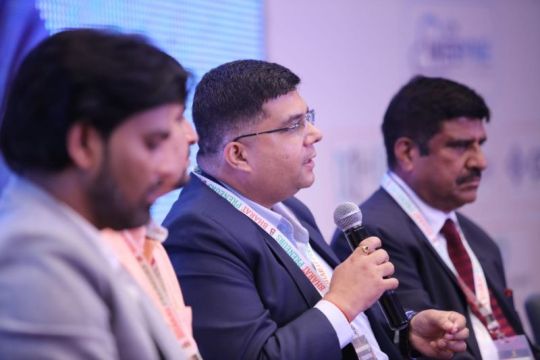








#Corporate lawyers in Delhi#Arbitration Lawyers in Delhi#Bail Criminal Defense Lawyers in Delhi#Commercial Civil Disputes Litigation Lawyers in Delhi#Corporate Disputes Litigation Lawyers in Delhi#Insolvency Bankruptcy NCLT Lawyers in Delhi#Private Equity M&A Investment Lawyers in Delhi#Technology Data Protection E-Commerce Fintech Lawyers in Delhi#Regulatory Legal Compliance Audits in Delhi Noida#Director Investor Shareholder Dispute Litigation Lawyers in Delhi#Sports Gaming lawyers in Delhi#Startup Investor Lawyers in Delhi#Banking NBFC DRT Lawyers in Delhi#Financial Investment Fraud Lawyers in Delhi
0 notes
Text
Equi Corp Associates (ECA) has the best Corporate Disputes Litigation Lawyers,Insolvency Bankruptcy NCLT Lawyers, Private Equity Funds Investment Transaction Advisory M&A Lawyers, Technology E-Commerce Fintech Blockchain Lawyers, Regulatory Compliance Legal Audits in Delhi.
0 notes
Text
Atul Sharma on establishing ASA Legal Services LLP and upcoming field of Insolvency & Bankruptcy laws in India
Mr. Atul Sharma is a successful and pragmatic lawyer having experience of more than a decade in the legal field. After graduating from Meerut University in 1983, he started his individual criminal practice by the name of Atul Sharma & Associates which he successfully grew and developed over the course of time. His area of specializations includes Arbitration, Civil Litigation, Insolvency& Bankruptcy laws, amongst others. Keeping up with the growing and evolving market, he expanded his operations by establishing ASA Legal Services LLP, a full-service law firm with operations in cities like New Delhi, Mumbai, Bengaluru and Ahmedabad. With a pan-India presence, ASA Legal has gone on to cement its status as one of the reputed law firms of the country. Mr. Sharma advises various clients ranging from corporate houses, Banks, Financial Institutions, Public Sector Undertakings, etc. and also has experience in advising and working in issues relating to real estate financing and restructuring.
Mr. Atul Sharma will be taking us through his legal career, and will be sharing his thoughts on the upcoming field of Insolvency & Bankruptcy laws in India, the challenges one comes across in running their own law firm and how can one build upon it
1.Hello, Sir! It is indeed an honour and pleasure to have you with us. To begin with, please tell us about yourself, how did you start your journey in the area of law or rather what made you interested in this field?
First, I’d like to sincerely thank you for giving me this coveted chance of sharing my experiences and insights about my, never-ending, journey in this legal profession with your dear readers.
When legal profession was not the choice at all, the last resort for people who didn’t do or opt for anything fruitful lucrative career in life, I decided to pursue it with a firm belief that I’d break the said notion which have stigmatised such a quality profession.
Hailing from a middle-class family, I started my career in the year 1983 after passing out from Meerut University, Uttar Pradesh where the way forward was uncertain and undefined but I steered my journey with the sheer belief that “I’d be the change” instead of being “Subject to a change orchestrated by someone”. I always believe that lawyers have a substantial impact in the betterment of the society in many ways. Two things which I strongly believe have formed my present are my commitment towards my work and believing in myself, which changed the modest beginnings till date
2. You have started your career in 1983. Tell us about how the field has transformed over the years and what the future holds for new generation lawyers.
Prior to the emergence of corporate legal sectors, jobs available to lawyers like me were mostly assisting to practicing advocates and that to without any payment. So, there were only two option either be employed with private or govtsector or practice as independent lawyer. The practice had only two option i.e. civil or criminal.
But from the 1990s when liberalization came in to picture under the Indian economy, demand for lawyers who provided advisory in different practice domains have taken this field to a completely new era of modernization. Now we can see tremendous advancement in the area of law with different practice areas such as Banking & Finance, Mergers & Acquisition, Investment Arbitration, Private Equity & Venture Capital etc.
The establishment of good law schools in India has completely changed the landscape of Indian legal system, bar and bench both have modernized themselves. And I believe that future of new generations lawyers will be more technologically advanced, each lawyer will have their own specialized practice domain not like it used to be in early 90s.
3. It has been more than a decade since your commencement in this field. How do you still manage to put forth so much energy and enthusiasm in the field when lot of youngsters in this profession are struggling to cope up even for couple of years?
The key to success in this field is patience and perseverance: patience to learn the craft, patience to start from zero and go up the ladder eventually, patience to imbibe the nuances of the profession while being at the nascent steps of your career, persevering while the odds are heavily stacked against you because the tides that rise up to your height now will ebb away eventually and you’d be standing tall.
No one is born big and become a brand. Everyone has passed through the litmus of time and has to carve a niche for himself. Everyone must carry its horizon which sets the bench mark for rest.
I believe unless one dreams, he cannot achieve it. So, my job is to have a dream and make it possible. Youngster are my source of energy, they challenge me in every spear of life, professional, social &emotional.Their rough quest to achieve, survive and quick strides to make big irrespective of all odds is what challenges me more and more. Though I may have suggestion for them to have baby steps today which would eventually make them stand as an adult tomorrow.
I have left nothing unattended in my life. Though I’m not very organized, but my zeal to leave nothing unattended, makes everything possibly correct and organized.
4. From Atul sharma to Atul Sharma & Associates and presently, ASA Legal, do tell us how it all came about. Noteworthy, it was 23 years in Atul Sharma & Atul Sharma & Associates and 12 years already in ASA Legal. Do tell us about the firm and its practice areas.
I started my carrier in 1983 from Patiala House District Court, as a criminal lawyer. I was assisting to few senior lawyers in trials and bail matters. With a short span of one year I was able to establish my small practice in criminal field. However, very soon realised that my interest lies somewhere else, so stared trying on the civil side, MACT, Matrimonial, Banking and so forth other commercial practice areas. Especially, practice in banking lawsgave lot of knowledge of litigation and corporate work. And this was the turning point where Atul Sharma turned into Atul Sharma & Associates representing practically all the Banks, Financial Institutions with their advisory as well as litigation requirements.
With the increase in the work as well as number of lawyers associated, Atul Sharma & Associates become ASA Legal, a full service law firm having its operations in India with offices located at New Delhi, Mumbai, Bengaluru and Ahmedabad having two senior partners, eight partners and additional lawyer’s at different levels who look after the clients and their requirement, most of the lawyers at ASA Legal are home grown talents. But I would specially mention Mr. Anil Kumar Sharma and Mr. M.L. Rajora, two senior partners in ASA Legal who have supported and helped me in building this organization from the grass root level.
The Firm is a well-equipped organization comprising of highly qualified and well-experienced legal professionals and consultants trained to deliver/provide necessary and requisite legal support as per the requirement of the clients, both domestic and foreign.
The Firm represents clients across a spectrum of sectors comprising of government and non-governmental organizations, international entities, multinationals, Indian and foreign corporate bodies, banks, financial institutions and individuals in an array of matters. Our main areas of focus are litigation, dispute resolution, arbitration, insolvency and bankruptcy, corporate law, banking and finance, employment, labour and industrial law, real estate, corporate restructuring and due diligences.
5. Bankruptcy and Insolvency, recovery related matters is one of the core areas you and the firm specializes at. What are your viewsabout the Insolvency and Bankruptcy Code, 2016 (“I&B Code”)keeping in view the present market scenario?
Around a year back I was going through the World Bank’s report on how other countries are handling their insolvencies, while reading the report I found that global ranking of India under the insolvency regime is above 100.
Before the I&B Code came into application the whole procedure of insolvency and liquidation has dependably been in the hands of the shareholders and debt holders. By and large, when the whole procedure was finished, the benefits were dissolved with very small portion left for the creditors. Or on the other hand the promoters took an interest in the offering procedure and reacquired similar resources however with a very steep haircut, leaving the lenders vulnerable.
The I&BCode has been made for a noteworthy power move from the hands of the shareholders, management and the promoters to the lenders. Presently a
creditor with a default of Rs 1 lakh, can take the organization into liquidation. But still the Code has many grey areas which from time to time will be refined by absorbing the nature of Indian economy sector wise.
There is no doubt about the phenomena I&B Code is doing. But at the same time, I must say, that the I&B Code as on date is a double-edged sword. With the ever-dynamic approaches, every day, there is a new interpretation a new approach. For certain businesses it’s a boon, whereas for others it appears to be a cause for failing business models. We are still experimenting; indeed, we have grown and have grown for good, but the experiment is on. One must understand, that insolvency is an underlying state and merely with none payment of pending amounts that state cannot be reached, the underlying condition of reaching insolvency is no-capacity to pay and not the no-desire to pay. For the no-desire situation I believe, the right forums are the civil ones, whereas for no-capacity it is the NCLT as Adjudicating Authority.
One must understand the difference, if that is achieved, I believe the object of the code will be achieved. We cannot equate horses and mules, similarly we cannot equate a Solvent Financial Figures with the none-solvent ones only on the basis, that there is a delay in the payment or there is no desire to pay, a very thin line difference indeed.
I would again say as of now I&B Code is in its initial phase, we are still experimenting, the results will become better in the coming time, especially, when the application would be made in right direction.
6. What were the challenges faced while building up your own law firm as it stands today?
Nothing delivers without pain. The journey with new challenges, failures and pain has been wonderful. If I see back in time, I feel happy for all my failures, unsuccessful attempts because they lay the foundation stone of success.
Building up your own law firm requires lots of perseverance, handling the client, convincing the clients, turnaround time of ongoing assignment, infrastructure and most important thing flexibility of your family and employee towards you.
The biggest challenge is to give commercially viable solution to your client and to implement it to the satisfaction of the client.
7. Any advice for our readers?
Simple advice for the readers would be to stick to this one liner which I, personally, have always found very valuable in this profession, i.e. Rome wasn’t built in a day. The simple mantra of being willing to start from zero is nothing but learning the tricks of this trade now because all the knowledge that you imbibe today will help you rake up the sums later. Your tangible dreams can only be fulfilled if your intangible knowledge is strengthened, polished and founded corrected.
I am firm believer of these line by poet Dushyant Kumar “Kon kahta hai ki asman me ched nahi ho sakte, ek bar pather uchalke to dekho”
Interview conducted by Shubhodip Chakraborty, a final year student of KIIT School of Law, Bhubaneswar pursuing BBA.LL.B (Business Law Hons.). He is the Student Ambassador of KIIT School of Law.
Tweet
The post Atul Sharma on establishing ASA Legal Services LLP and upcoming field of Insolvency & Bankruptcy laws in India appeared first on SCC Blog.
Atul Sharma on establishing ASA Legal Services LLP and upcoming field of Insolvency & Bankruptcy laws in India published first on https://sanantoniolegal.tumblr.com/
0 notes
Text
NCLAT Settles the Fate of Proceedings under Section 138 of the NI Act during Bankruptcy
[Aayush Mitruka is a lawyer based in Delhi]
The National Company Law Appellate Tribunal (the NCLAT) settled a very important question of law under the Insolvency and Bankruptcy Code, 2016 (the Code) which has been troubling practitioners. The question whether proceedings filed under section 138 of the Negotiable Instruments Act, 1881 (the NI Act) against the corporate debtor will be stalled pursuant to a moratorium imposed under section 14 of the Code has been lingering for some time without any authoritative pronouncement. The question has now been answered by the NCLAT in Shah Brothers Ispat Private Limitedv.P Mohanraj & Others.
On the facts of the case, the appellant who had initiated a corporate insolvency resolution process against the corporate debtor (viz. Diamond Engineering Chennai Private Limited) had also filed a complaint against the corporate debtor and its directors under section 138 of the NI Act. The corporate debtor and its directors moved the National Company Law Tribunal, Chennai (NCLT) and prayed that appellants be ordered to withdraw the case in light of the pending corporate insolvency resolution process. The NCLT ordered in favour of the respondents and directed the appellants to withdraw the compliant case, treating it as a proceeding filed after the order of moratorium. The NCLT in its short order observed that such action amounts to a deliberate attempt to violate the order of moratorium on the part of the appellants and a sheer misuse of the process of law. Notably, the NCLT did not discuss the rationale and contours of section 14 of the Code while arriving at its decision.
On appeal, the NCLAT overturned the NCLT’s order and observed the following:
��6. We do not agree with such submission as Section 138 is a penal provision, which empowers the court of competent jurisdiction to pass order of imprisonment or fine, which cannot be held to be proceeding or any judgment or decree of money claim. Imposition of fine cannot held to be a money claim or recovery against the Corporate Debtor nor order of imprisonment, if passed by the court of competent jurisdiction on the Directors, they cannot come within the purview of Section 14. Infact no criminal proceeding is covered under Section 14 of I&B Code.
7. The Adjudicating Authority having failed to appreciate law, we have no option but to set aside the impugned order dated 24th May, 2018 passed in MA/102/IB/2018 in CP/507/IB/2017. The court of competent jurisdiction may proceed with the proceeding under Section 138 of NI Act, even during the period of moratorium.”
In a post written on this Blog in September last year, I had discussed this question of law and had argued that such proceedings ought to be kept outside the purview of section 14 (i.e. moratorium) of the Code in light of its legislative intent. Whilst the NCLAT has put to rest an important question, there are several other looming issues and questions which are of concern to the legal community and other stakeholders. It can only be hoped that such issues will be ironed out in the days to come.
– Aayush Mitruka
The post NCLAT Settles the Fate of Proceedings under Section 138 of the NI Act during Bankruptcy appeared first on IndiaCorpLaw.
NCLAT Settles the Fate of Proceedings under Section 138 of the NI Act during Bankruptcy published first on https://divorcelawyermumbai.tumblr.com/
0 notes
Text
Tribunals dismiss Macquarie Bank's insolvency petition against Uttam Galva Metallics
Tribunals dismiss #MacquarieBank's insolvency petition against #UttamGalvaMetallics
The National Company Law Appellate Tribunal in Delhi has upheld a Chandigarh NCLT order dismissing Macquarie Bank’s insolvency petition against Uttam Galva Metallics on the grounds that the Australian lender was not registered locally also that the Insolvency and Bankruptcy notice was not issued by an “operational creditor’, but by a Singapore lawyer.
In an order dated July 17, NCLAT said that…
View On WordPress
0 notes
Text
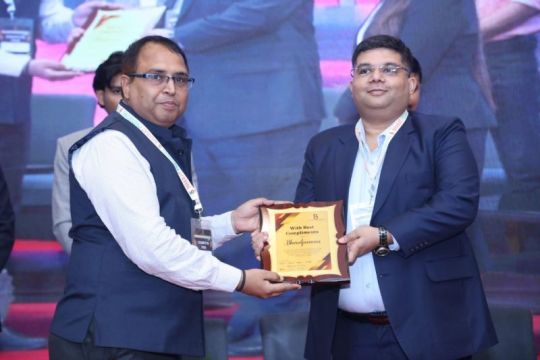

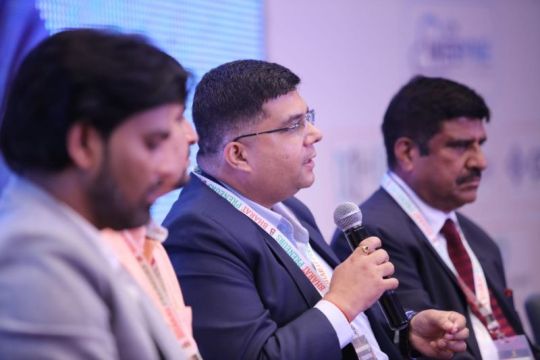
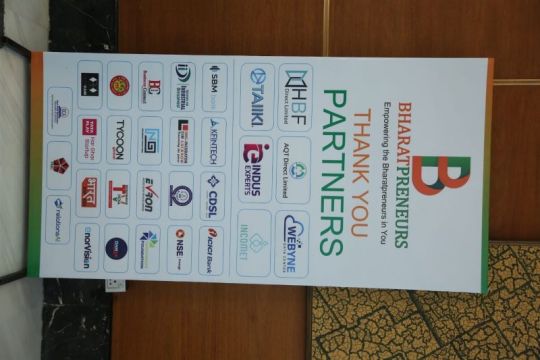
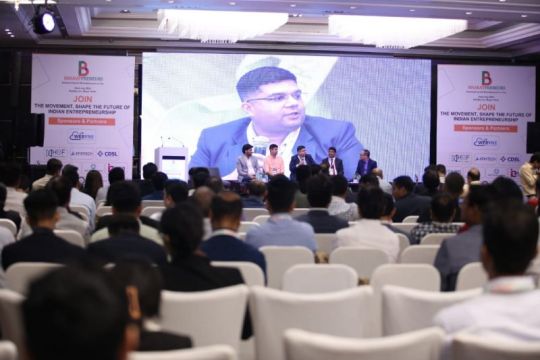

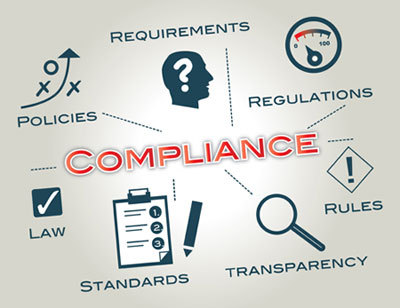




#Corporate lawyers in Delhi#Arbitration Lawyers in Delhi#Bail Criminal Defense Lawyers in Delhi#Financial Investment Fraud Lawyers in Delhi#Commercial Civil Disputes Litigation Lawyers in Delhi#Corporate Disputes Litigation Lawyers in Delhi#Insolvency Bankruptcy NCLT Lawyers in Delhi#Private Equity M&A Investment Lawyers in Delhi#Technology Data Protection E-Commerce Fintech Lawyers in Delhi#Regulatory Legal Compliance Audits in Delhi Noida#Director Investor Shareholder Dispute Litigation Lawyers in Delhi#Sports Gaming lawyers in Delhi#Startup Investor Lawyers in Delhi#Banking NBFC DRT Lawyers in Delhi
0 notes